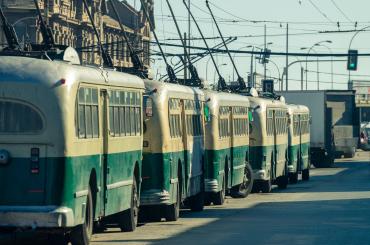
urban
-

Stimulating private sector development through investments in public infrastructure
Investments in local infrastructure that promoted urban livability in Mexico also led to sustained development of the local economy in terms of the size and profitability of private sector firms
-

How potential offenders and victims interact: Evidence from Chile
Decoupling driver salaries from fare revenues led to a surge in crime, highlighting the role of private behaviour in victimisation
-

How technology can drive student performance
How does the use of education technology actually impact students in poorer regions of the developing world?
-

Uncongested mobility in urban India
Variation in transportation performance is driven by uncongested mobility due to everyday road obstructions, not conventional traffic congestion
-

Job security or flexibility?
A study in urban India reveals that workers would be willing to reduce their wages for greater job security while also incorporating flexibility
-

Do job training programmes work?
The design and incentives of work programmes need to be aligned with the skills demanded by participating firms and the labour market at large
-

The many dimensions of mobile money: Evidence from Bangladesh
Mobile money makes transfers easier, increases rural consumption and reduces poverty, but places pressure on migrant workers to increase remittances
-

Land Rights and Urban Poverty
Sebastian Galiani on the impact Argentina’s land title policy had on credit access, housing quality, family welfare and economic ideology.